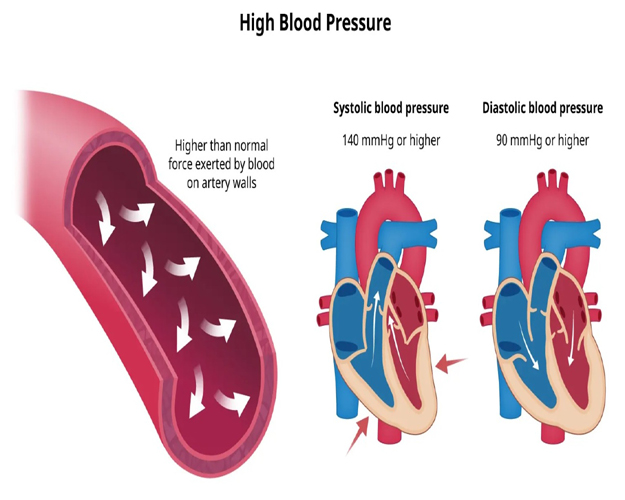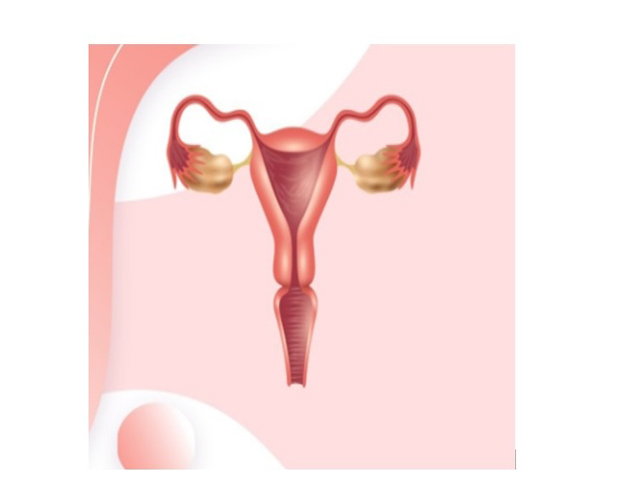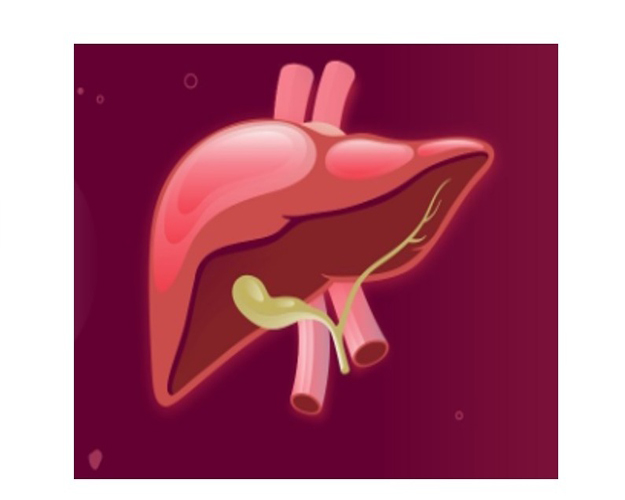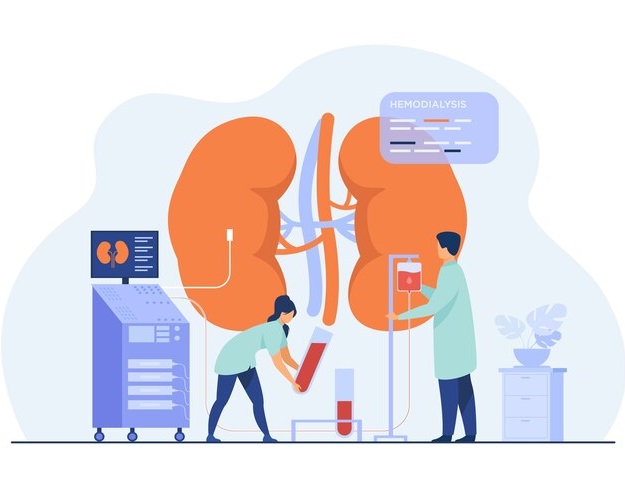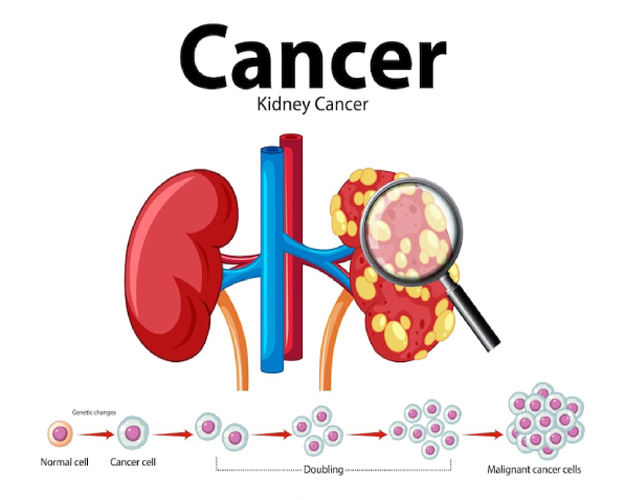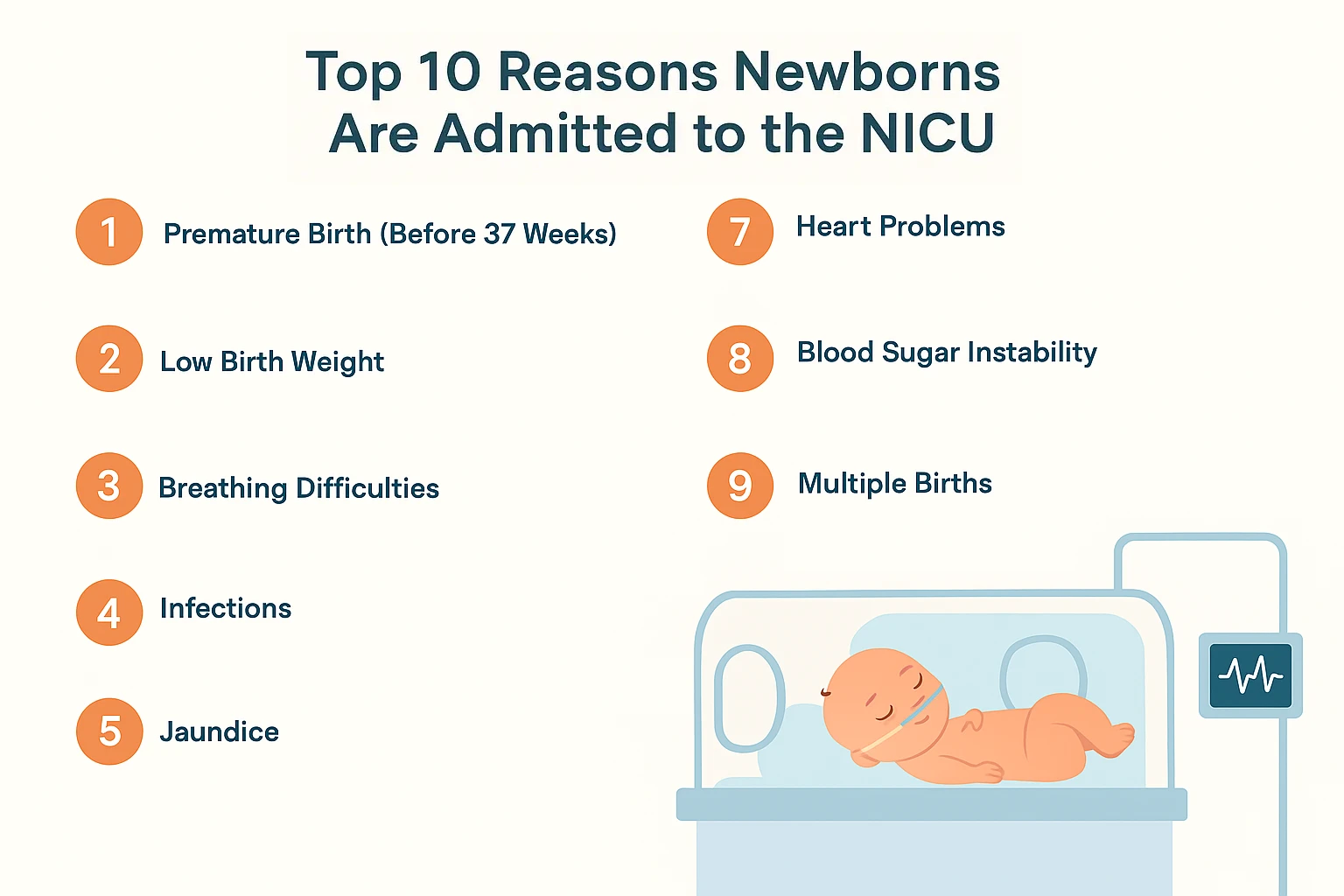
Top 10 Reasons Newborns Are Admitted to the NICU
The birth of a baby is a moment of joy, but for some families, it also comes with challenges. Some newborns require specialized care immediately after birth, which is provided in the Neonatal Intensive Care Unit (NICU). The NICU is equipped with advanced technology and highly trained healthcare professionals to care for babies who need extra medical support. Understanding why newborns may be admitted to the NICU helps parents feel more prepared and reassured. Here are the top 10 reasons for NICU admission:
1. Premature Birth (Before 37 Weeks)
Premature babies are the most common patients in the NICU. They may have underdeveloped organs, especially lungs, and require support for breathing, feeding, and temperature regulation.
2. Low Birth Weight
Babies weighing less than 2,500 grams (5.5 pounds) may need NICU care due to difficulties in maintaining body temperature, feeding challenges, or increased risk of infections.
3. Breathing Difficulties
Conditions such as Respiratory Distress Syndrome (RDS), meconium aspiration, or underdeveloped lungs often lead to breathing problems. These babies may need oxygen therapy, ventilators, or CPAP machines.
4. Infections
Newborns are more vulnerable to infections like sepsis, pneumonia, or meningitis. Early detection and treatment with antibiotics often require NICU monitoring.
5. Birth Complications
Difficult deliveries can sometimes result in low oxygen levels at birth (birth asphyxia), requiring immediate NICU intervention to prevent long-term complications.
6. Jaundice
While mild jaundice is common in newborns, severe cases need NICU treatment with phototherapy to reduce high bilirubin levels and prevent brain damage.
7. Heart Problems
Congenital heart defects or irregular heartbeats (arrhythmias) may be detected soon after birth, requiring close monitoring and sometimes surgical intervention in the NICU.
8. Blood Sugar Instability
Newborns with very low (hypoglycemia) or high (hyperglycemia) blood sugar levels often need NICU care, especially if their mothers had diabetes during pregnancy.
9. Multiple Births
Twins, triplets, or higher-order multiples are more likely to be premature and underweight, which often leads to NICU admission for specialized monitoring and care.
10. Congenital Conditions
Babies born with congenital anomalies such as cleft palate, spina bifida, or genetic syndromes may need specialized medical or surgical support in the NICU.
How NICU Care Helps Newborns Thrive
The NICU provides a controlled environment with advanced monitoring systems, incubators, and expert neonatal teams. This specialized care helps stabilize babies, supports their growth and development, and ensures that parents receive guidance on how to care for their newborns once they are ready to go home.
Conclusion
While the need for NICU admission can feel overwhelming for families, it is often the safest and most supportive place for newborns who require special care. With timely medical intervention and continuous monitoring, most babies recover well and go on to live healthy, happy lives.
At ITM Hospital, we are dedicated to ensuring every newborn receives the best start in life. Our team of specialists offers comprehensive neonatal care, combining compassion with advanced medical expertise. For added convenience, parents can also access specialist video consultations through ITM City Clinic, making expert guidance available anytime, anywhere.
Thank you for reading. We hope this blog helps you understand the common reasons why newborns may need NICU care and how specialized treatment can make a big difference. For expert insights, stay connected with our blog, and for reliable advice with personalized care, consult our Paediatricians (Child Specialists) at ITM Hospital.

